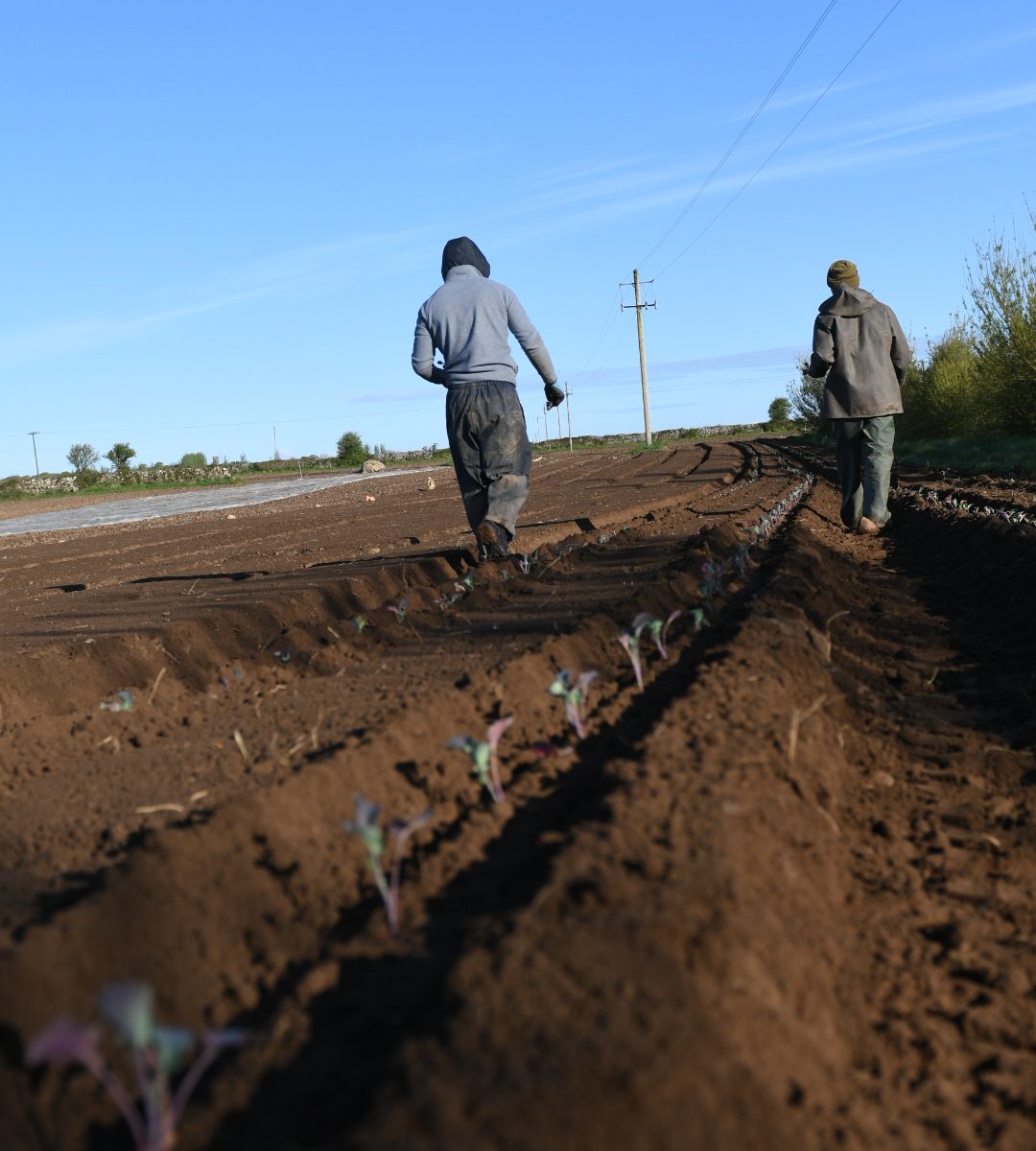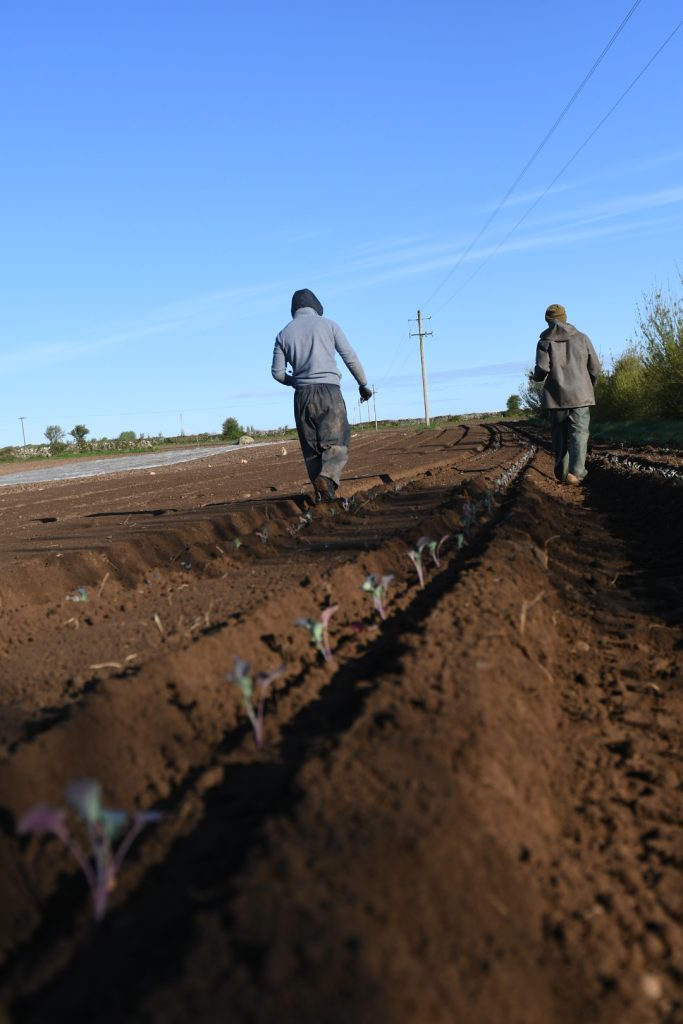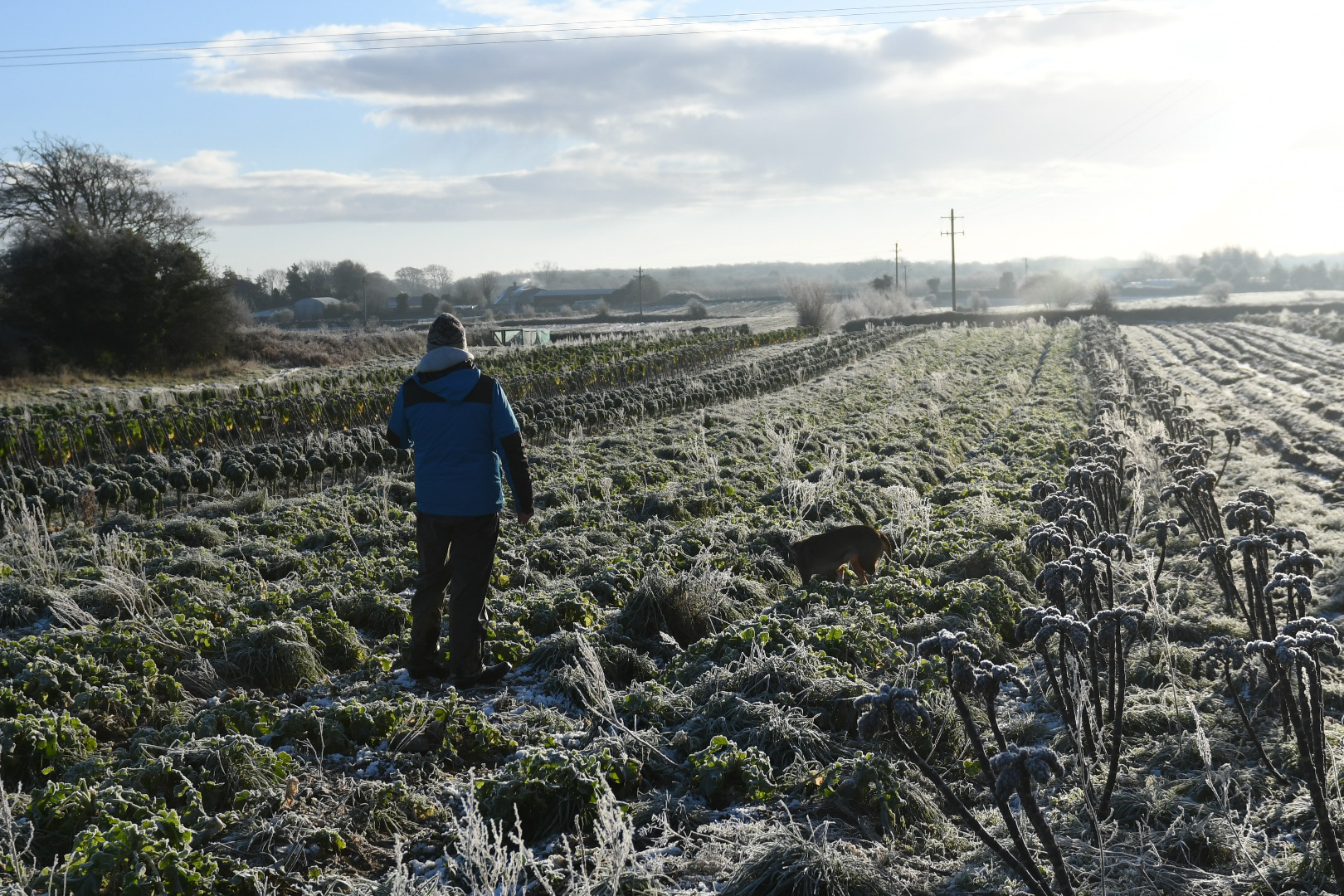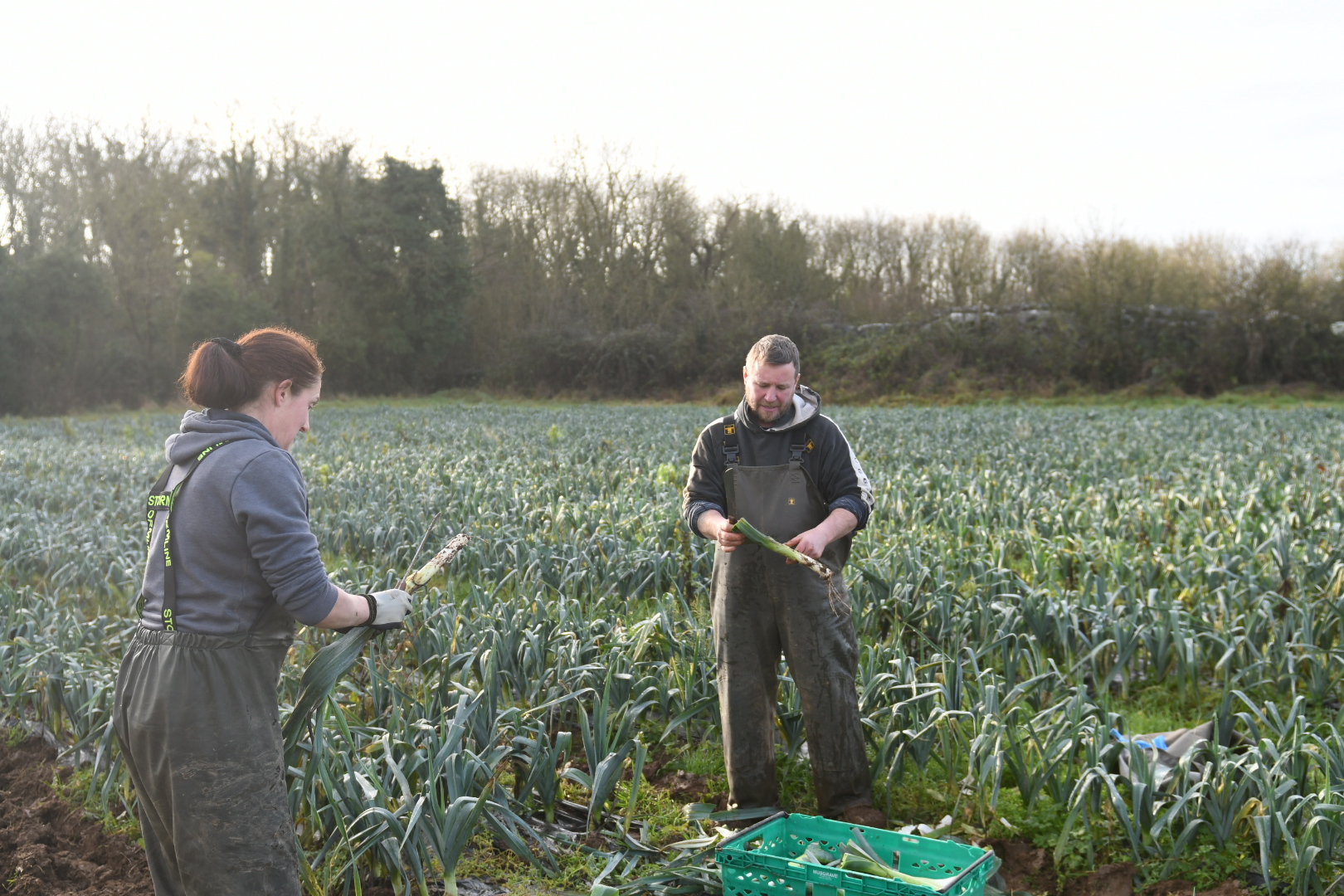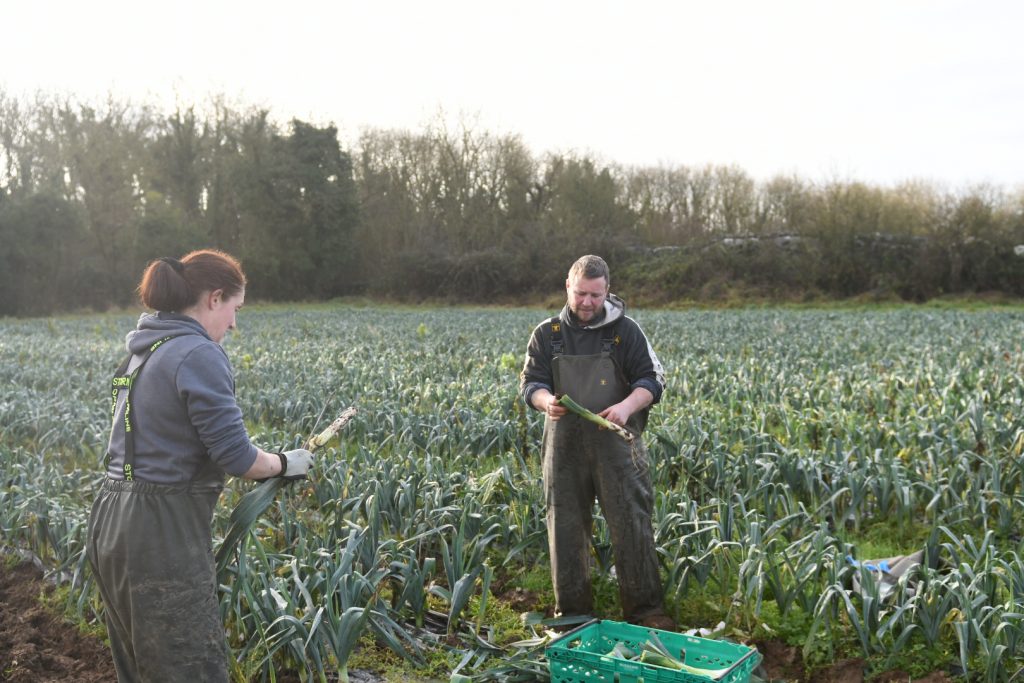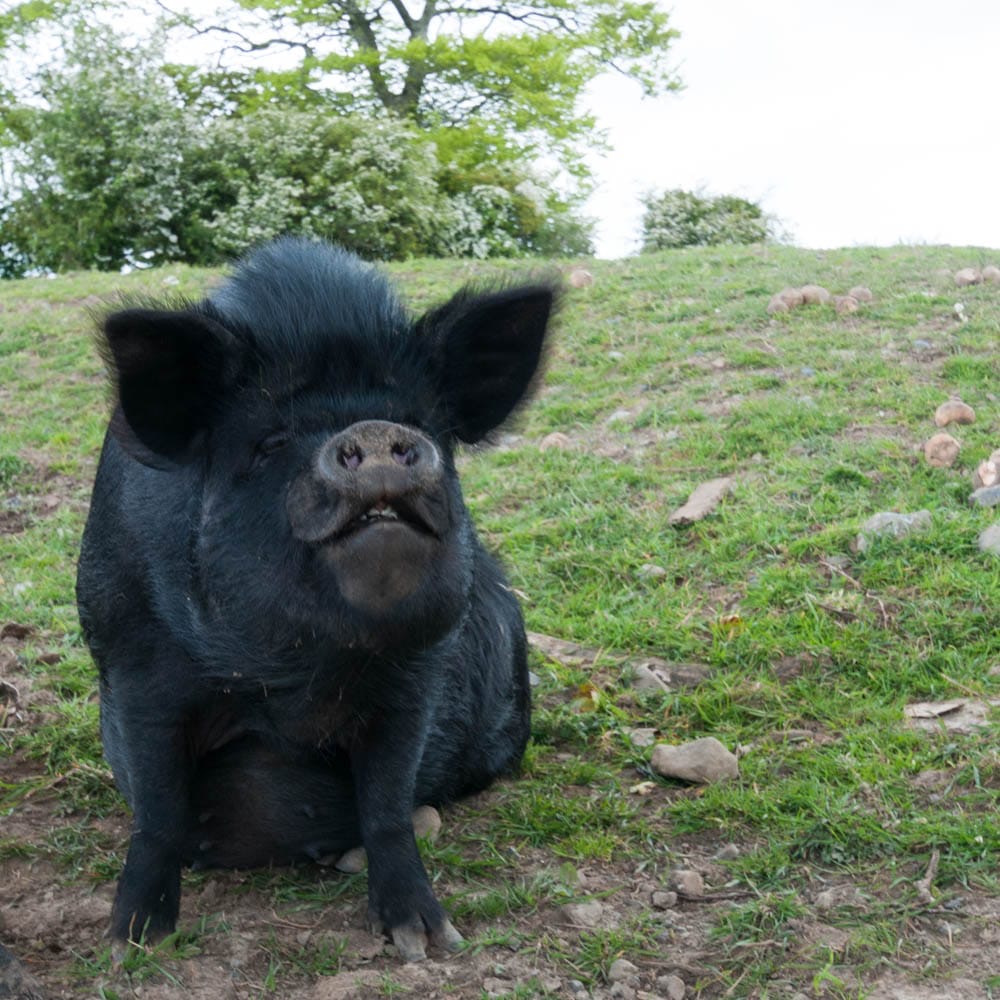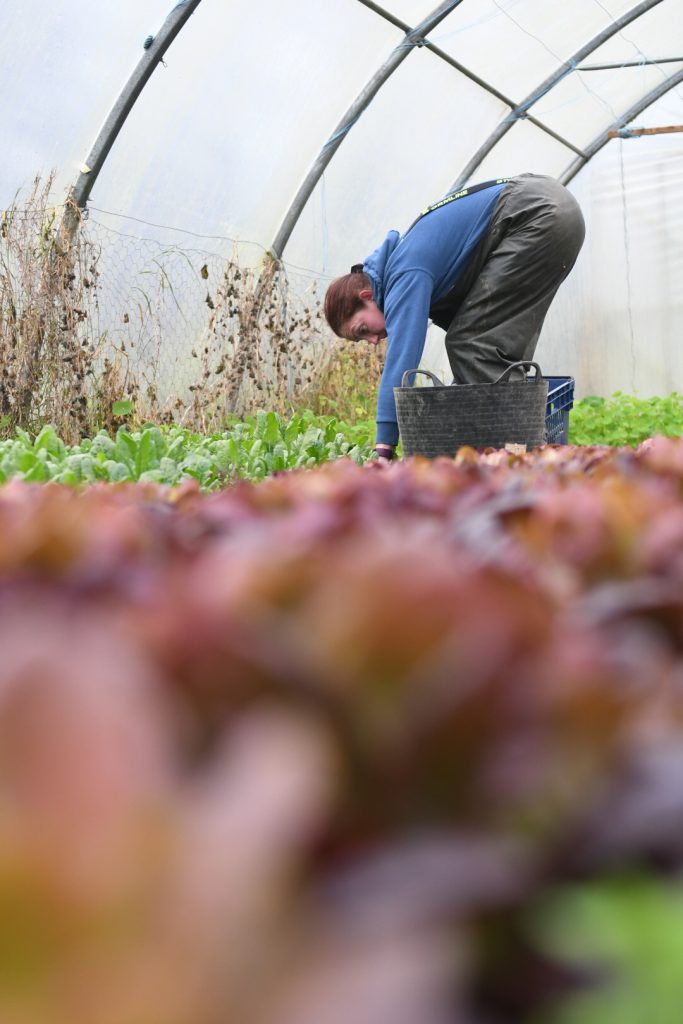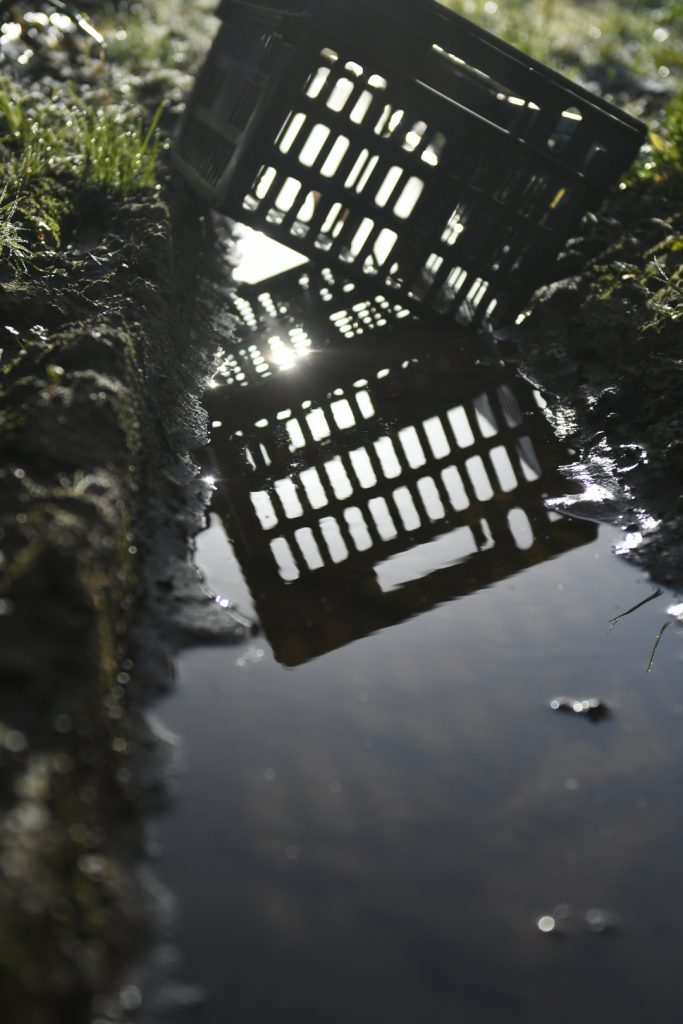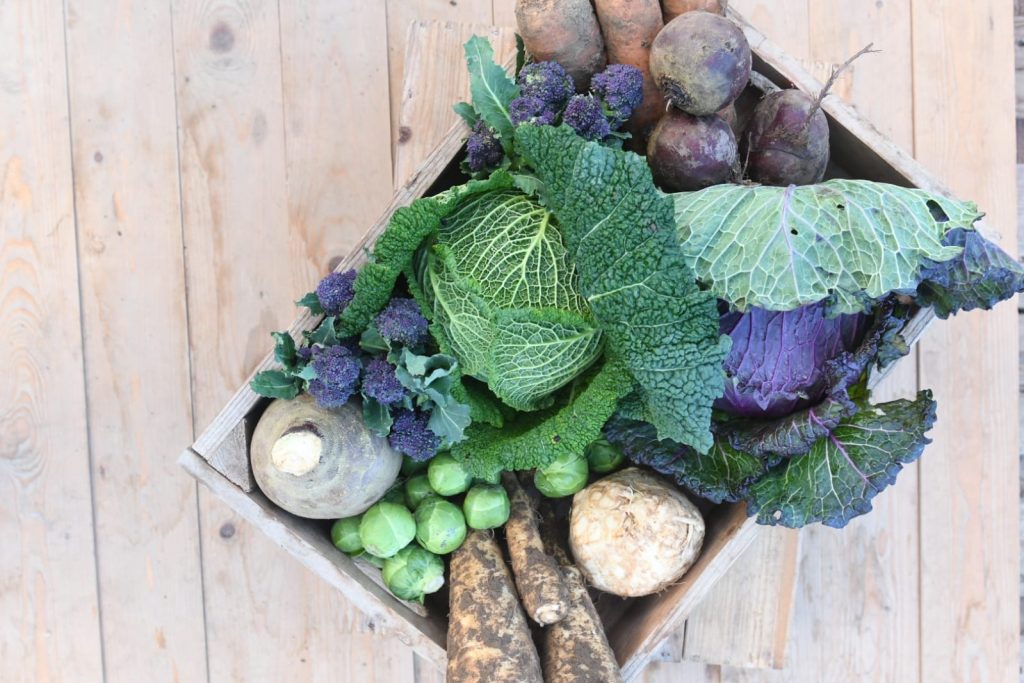During the week I was asked to come on the Sean Moncrieff show to talk about the supermarket practice of loss leading with fresh produce. Only 1% of farms in Ireland now grow veg, there are only 60 commercial growers left in the country down from over 400 in 1998.
You can listen to the interview here

Not as glamorous as talking from a box in the middle of the field I think, but we gave it a go anyway!
And if you are inclined to listen to my rant from a box in a polytunnel CLICK HERE
Here’s an example to illustrate exactly why this is happening, a few years ago most of the celery and scallions during the season were grown in Ireland, now that situation has changed dramatically. This year there has been a massive decline in Irish grown celery and scallions on supermarket shelves, and why is this? The bottom-line growers, who are struggling to cover production costs (they have gone up by 43% in the last 3 years!) could not negotiate a very small cost increase, and we are talking cents single digit here, as a result the farmers decided to stop growing the produce.
Two years ago one of the biggest sprout growers in the country closed after three generations due to lack of supermarket support.
The irony of this situation is that as supermarkets continue to practice squeezing the primary producer here in Ireland for short term gain, they must look to source the produce elsewhere. But there is pressure on growing systems everywhere due to climate change and as a result they can end up paying more for imported produce.
Because after all, with the disastrous growing year we had last year, if you cannot put a little aside in the good years how do you survive the bad years and if your only outlet is the supermarkets, and they won’t help out then there is no other viable choice but to stop growing food.
We, who once were a nation of food producers and vegetable growers have let our primary vegetable growing industry virtually disappear.
I strongly feel that it is a very sad reflection on this retail model and the mindset and expectation it encourages in us as consumers that fresh produce is worthless. Not only does it make the craft of growing food financially unviable, but it is highly demoralising to growers to be told that their produce is essentially worthless.
At the very same time that fresh produce is used to get consumers in supermarket doors by devaluing it to nothing, you have a production and retail industry that thrive on making high margins on junk food. This food, ultra-processed rubbish, is nutritionally worthless and is making us sick and lines most retailers’ shelves.
The solution is simple, primary producers need to be paid more for the produce they grow, this can come about through the celebration of fresh produce, food that will make us well and healthy and in the long run ironically will save us all money and will save an industry.
As always thanks for your support.
Kenneth
PS We have amazing Irish organic produce now, from our own farm, kale Green, Black (Cavolo Nero), Purple, salad, lettuce and courgettes, we have Irish produce from Joe Kelly in Mayo, Padraigh Fahy in Beechlawn, Marc Michel in Wicklow, Enda Hoban in Galway, Mick and Audrey in Millhouse, John Mc Ardle for mushrooms, and so much more. See our IRISH SECTIOH HERE






